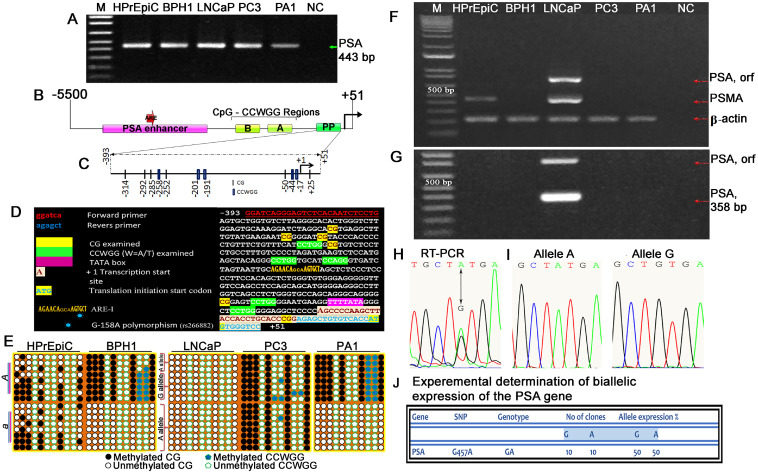
Allele-specific methylation of the PSA promoter in prostate cells: A new translational marker for the differential diagnosis of prostate cancer


DNA methylation is one of the mechanisms of epigenetic control of gene expression, and a change in the intrinsic pattern can lead to various diseases and disorders. At the same time, this makes DNA methylation a disease-specific biomarker. For a long time, prostate-specific antigen (PSA) was used as an established tumor marker for prostate adenocarcinoma in the clinic for the diagnosis of prostate cancer (PCa).1 Despite the generally accepted fact that PSA is organ- but not cancer-specific, it still retains its diagnostic value for cancer detection.2 Here, we show that the acquisition of biallelic methylation status or even biallelic lack of methylation by the PSA promoter is a characteristic feature of cancer cells, while the monoallelic distribution of CpG/CCWGG methylation in the PSA promoter is a hallmark of noncancerous conditions. The coexisting CpG/CCWGG monoallelic methylation may indicate that CCWGG may represent a new signaling event for monoallelic methylation, suggesting novel functionality of this mark or representing benign prostatic hypertrophy conditions. In this study, we demonstrate that the methylation status of the non-CpG island PSA promoter spanning from −393 to +51 nucleotide positions, possessing 6 CpGs and 5 CCWGG epigenetic marks, has a distinctive methylation pattern in a PCa cell line model.
